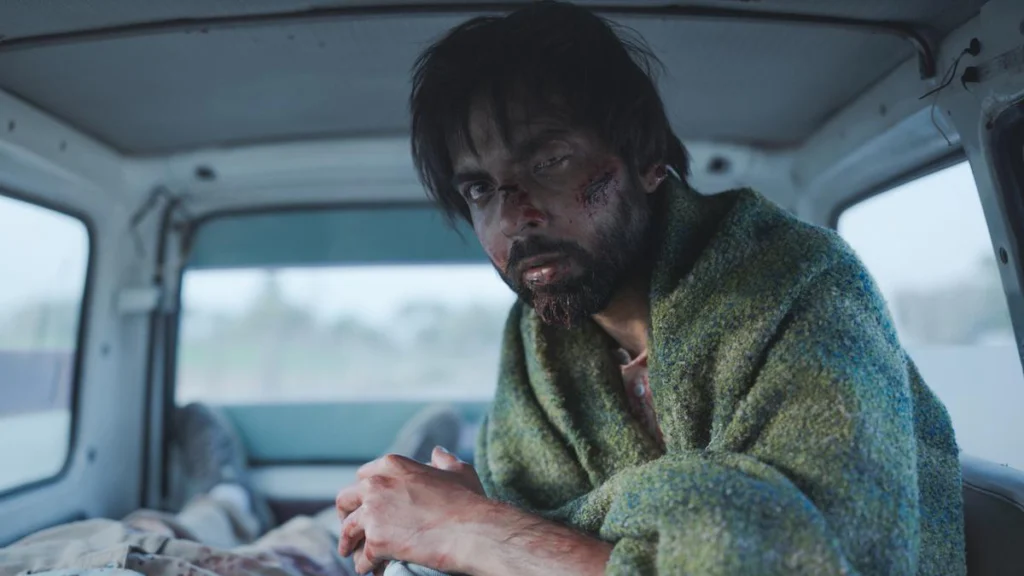‘Stolen’ movie review: Abhishek Banerjee’s road thriller is gritty but not revelatory

Stolen Review: A Gripping Premise That Fails to Deliver Anything New
Karan Tejpal’s debut directorial Stolen starts with all the ingredients of a tense, emotionally loaded thriller. Inspired by real events from 2018, the film sets itself up as a gripping Hindi chase drama that delves into complex emotions, moral ambiguity, and the ever-thin line between right and wrong. Yet, despite its haunting premise and moody visuals, Stolen leaves you with a feeling that you’ve seen it all before—and perhaps even better executed elsewhere.
A Mysterious Setup With Familiar Notes
At the center of Stolen is Raman, played by Shubham Vardhan, a young freelance photographer on his way to attend his mother’s wedding. This isn’t just any family gathering—it’s the kind of emotional whirlwind that deserves closure and ceremony. But in a sudden twist, Raman ditches his travel plans and gets entangled in a mystery involving a distressed woman and a missing child. The choice feels abrupt and unexplained, at least initially, and viewers are left to guess what motivates him.
While some may interpret his actions as a form of post-bereavement guilt (something the film briefly hints at), others might see it as a reflection of his profession. A photojournalist isn’t just a passive observer of tragedy—they often carry an invisible moral burden. Raman’s conscience seems activated in a way that’s as puzzling as it is compelling.
A Brooding, Well-Shot World
Visually, Stolen is outstanding. Tejpal crafts a world that feels both claustrophobic and wide open at the same time—dusty railway stations, lonely roads, and tight alleys create the perfect canvas for a story that thrives on isolation and urgency. The cinematography knows when to linger on a character’s face and when to zoom out, allowing the environment to weigh heavily on the narrative.
Sound design, too, plays a pivotal role. The tension isn’t always in what is shown—it’s in what we hear. The muffled cries of a baby, the roar of a train in the distance, the constant chatter of bystanders—all create an undercurrent of chaos beneath the surface calm.
Stellar Performances, Uneven Writing
Shubham Vardhan delivers a deeply layered performance as Raman. There’s a quiet storm within him, and he portrays it with subtle restraint. His co-stars, including Mia Maelzer who plays the distressed woman, match his intensity. Their shared scenes brim with discomfort, suspicion, and raw vulnerability.
However, the screenplay doesn’t serve these actors as well as it should. The dialogues are minimal—which in itself isn’t a problem—but the silences don’t always speak volumes. There’s a sense that the film is holding back, afraid to dig deeper into its characters’ psyches. While ambiguity can be a strength, here it comes off as a lack of narrative clarity.
An Emotional Engine That Doesn’t Start
For a film rooted in real events and sensitive themes like child trafficking and systemic apathy, Stolen needed a stronger emotional core. We never quite understand the woman’s backstory, nor do we feel the full weight of her loss. Raman’s motivations, too, remain sketchy at best.
The movie raises important questions—about bystander behavior, class divides, and personal sacrifice—but doesn’t answer any of them convincingly. You get the feeling that Stolen wants to say something important but doesn’t know how to articulate it. It relies heavily on mood and suspense to carry a story that lacks emotional depth.
A Hindi Chase Film With a Message?
Stolen clearly aspires to be more than a chase film. It taps into the thriller genre but tries to inject it with social commentary and moral dilemmas. Unfortunately, its messaging gets lost in the attempt to create tension. The final act, which should land like a punch to the gut, feels underwhelming and unresolved.
The ending leaves you with a mix of emotions—sympathy, confusion, maybe even frustration. Did the film truly honor its real-life inspiration? Did it move the conversation forward or just dramatize an incident without adding any new perspective?
What Could Have Been
There’s a lot that Stolen gets right. Its cinematography, performances, and tonal consistency all point to a director with potential. Tejpal shows promise as a storyteller who knows how to build atmosphere and work with restraint. However, this debut feels like a first draft of a better film. One can only hope that with more experience, Tejpal will find a stronger voice and the courage to go deeper.
Final Verdict
Stolen is haunting, well-acted, and visually compelling. But it ultimately plays it too safe. Instead of challenging the viewer or offering a fresh take on its theme, it recycles familiar tropes and leaves its emotional beats half-formed. For those expecting a meaningful commentary or a riveting thriller, it delivers neither completely.
If you’re a fan of slow-burn dramas and atmospheric storytelling, Stolen is still worth a watch. Just don’t expect to walk away with new insights or lasting emotional impact.






